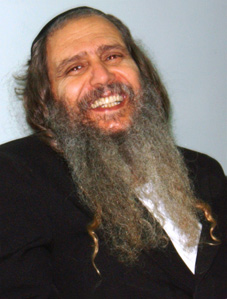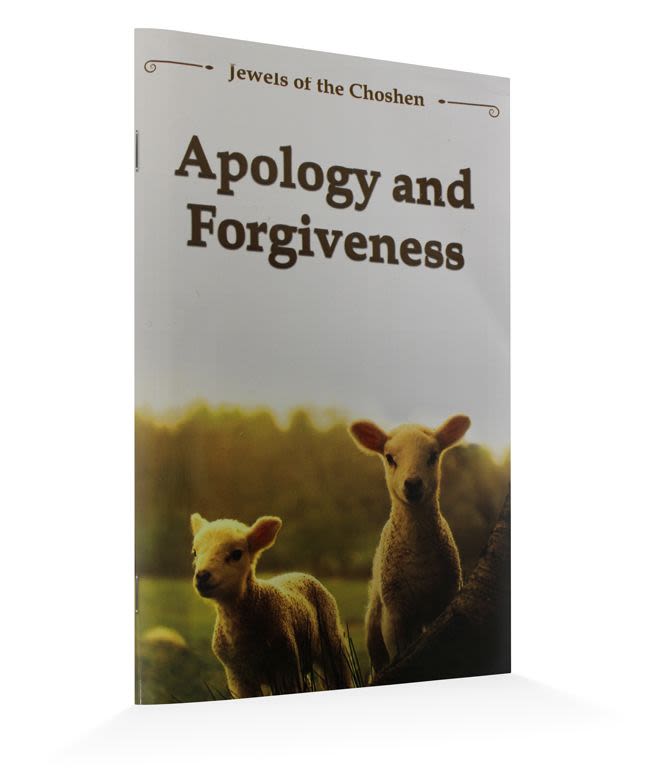
Keep Smiling, Keep Trying
Even if we slip up from time to time, we can make same-day or on-the-spot teshuva for whatever we did wrong. The important thing is to keep smiling and to keep trying.

Translated by Rabbi Lazer Brody
The Tale of the Lost Princess Part 32 from The Garden of Yearning
To Be a “Kosher” Person
 Rebbe Nachman once said (see Chayei Moharan, 453): “Just as you see me, I mean to say, you all regard me as a complete tzaddik, even so, if Heaven forbid I were to commit the greatest sin in the world, even so, I wouldn’t let the sin throw me off track, I’d just continue to be a kosher person after the sin as before the sin, only afterwards, I’d make teshuva!”
Rebbe Nachman once said (see Chayei Moharan, 453): “Just as you see me, I mean to say, you all regard me as a complete tzaddik, even so, if Heaven forbid I were to commit the greatest sin in the world, even so, I wouldn’t let the sin throw me off track, I’d just continue to be a kosher person after the sin as before the sin, only afterwards, I’d make teshuva!”Apparently, Rebbe Nachman’s saying is strange. How can a complete tzaddik like Rebbe Nachman say that after the sin he wouldn’t be thrown off track, and that he’d continue to be a tzaddik as before the sin? Rebbe Nachman knew that if he would fall, he’d quickly climb to his feet with a new and burning desire to do better. As we learned in the beginning of this book, as soon as a person merely desires to do better, he’s considered a complete tzaddik! So we see, that even after a nasty fall, a person can be a tzaddik as long as he or she maintains a strong desire to be better and to get closer to Hashem. All he or she has to do is to be happy and to make teshuva for whatever they did wrong.
Rebbe Nachman was also teaching his disciples the principle that we’ve been discussing in this chapter, namely, that a person after a fall can rise much higher than a person that never fell. Hashem loves strong comebacks. Teshuva depends on strong comebacks.
Each of us should decide that we’ll always be “kosher” people, by constantly yearning for the proximity of Hashem. As long as we never give up our desires, we’re assured a rosy future. Even if we slip up from time to time, we can make same-day or on-the-spot teshuva for whatever we did wrong. The important thing is to keep smiling and to keep trying.
We should internalize – deep in our hearts – a burning desire to get close to Hashem, like an eternal flame that can’t be extinguished by the icy waters of a setback. Such a desire grants unfathomable gratification to Hashem. With the will to start anew and to rise quickly after a fall, a person will be stronger than if he or she had never fallen. This is the path of teshuva – a new and courageous start of getting to our feet speedily after a fall. Those who walk this path will surely redeem their own personal princess.
And great numbers of soldiers passed with their accompanied gear. The servant hid himself from the soldiers.
When a person falls into a state of spiritual slumber, until he awakens, he experiences all kinds difficulties, ups and downs, confusion, and the like. Rebbe Nathan wrote (Rebbe Nachman’s Tales, Introduction): “During the time of spiritual slumber, Heaven forbid, a person suffers what he suffers, and that’s the allusion of the great number of soldiers passing by while the viceroy was sleeping. ‘Their accompanied gear’ are all the tribulations that come along with a period of suffering.”
Afterwards came a covered carriage, and in it sat the princess. She stopped next to him. She descended and sat by him, recognizing who he was. She shook him strongly, but he failed to wake up. And she started to bemoan, “How many immense efforts and travails he has undergone, these many years, in order to free me, and because of one day that he could have freed me, and lost it…,” and she cried a great deal about this, saying “There is great pity for him and for me, that I am here so very long, and cannot leave…”
This segment alludes to the fact that the Shechinah, the holy Divine Presence, is constantly trying to awaken people from their spiritual slumber. When a person fails to wake up, the Shechinah suffers indescribable anguish, for she has infinite compassion for every person, especially for the Jewish soul that’s not aware of its own holiness and lofty spiritual status and continues to flounder in a spiritual exile. Such a soul sleeps its life away, wasting time on television, movies, inconsequential pastimes, and outright idleness. The sleeping soul forgets completely about its own Creator and the myriad of favors and miracles the Creator does for it every minute of the day. With emuna in exile, the soul slumbers, and the Shechinah wails.
After that, she took her scarf off of her head, and wrote upon it with her tears, and laid it by him. And she rose and boarded her carriage, and rode away…
The scarf with the tears written on it is the teachings of the tzaddik, which are written in his tears. The words of the true tzaddik are like burning coals dipped in the tears of sorrow, for the true tzaddik feels the holy Shechinah’s sorrow and the sorrow of the Jewish souls in exile. Before writing any Torah nuance or before lecturing, the tzaddik cries to Hashem begging for the right words that will stimulate readers and listeners to return to Hashem. The tzaddik has no other motive than bringing people closer to Hashem and spreading emuna and Hashem’s glory in the world. Therefore, the words that flow forth from a heart that burns with the love of Hashem have the power to warm the hearts of those who read or listen to them.
To be continued.











Tell us what you think!
Thank you for your comment!
It will be published after approval by the Editor.